Toolkit
Feb 01 2024
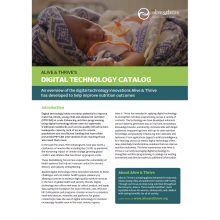
Alive & Thrive Digital Technology Catalog: An overview of the digital technology innovations Alive & Thrive has developed to help improve nutrition outcomes
Toolkit
Oct 13 2023
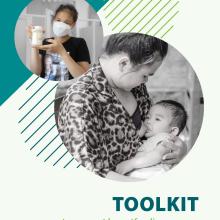
Toolkit to support breastfeeding women in the workplace
This toolkit is intended as a reference guide for employers and all those dedicated to creating breastfeeding-friendly workplaces in Viet Nam.
Report
Feb 18 2022
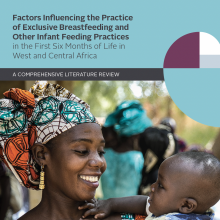
Factors Influencing the Practice of Exclusive Breastfeeding and Other Infant Feeding Practices in the First Six Months of Life in West and Central Africa
This comprehensive review of the literature written by Alive & Thrive and UNICEF provides nutrition stakeholders findings from research on the social and behavioral determinants of exclusive breastfeeding and other infant feeding practices during the first six months of life in West and Centr
Toolkit
May 16 2021
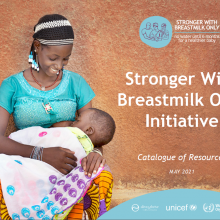
Stronger With Breastmilk Only Resources Catalog
This collection of resources and tools, developed by Alive & Thrive, UNICEF and WHO, supports national governments and their partners in adapting the "Stronger With Breastmilk Only" initiative to their national contexts.
Toolkit
Jan 06 2015
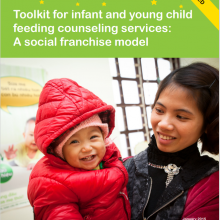
Infant and young child feeding counseling services toolkit: A social franchise model
Social franchises in the health sector typically operate by franchising a specific package of services through private health facilities that are already offering a wide range of both curative and preventive services.
Report
Nov 14 2014
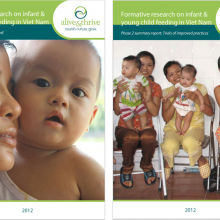
Formative Research on IYCF in Viet Nam
Summarizes methods and findings of a qualitative study in 2009 to identify current feeding practices and barriers to and facilitators of optimal practices, as well as summarizes findings from trials of improved practices conducted in 2010 to test the acceptability and feasibility of recommended f

